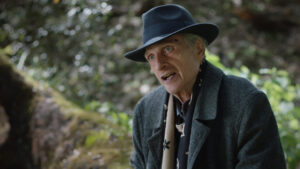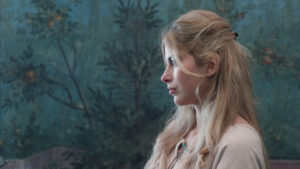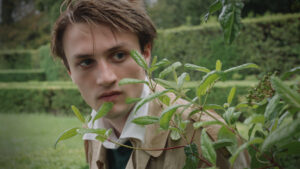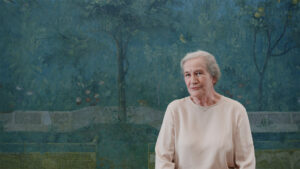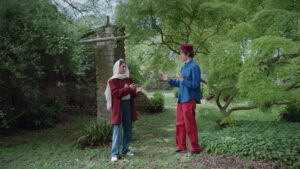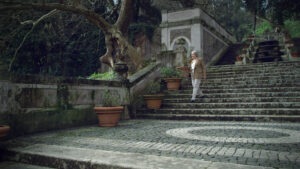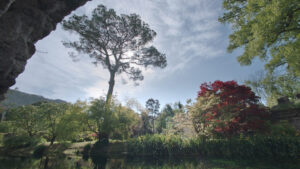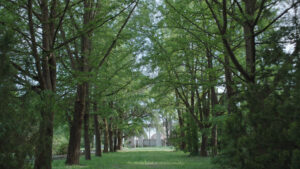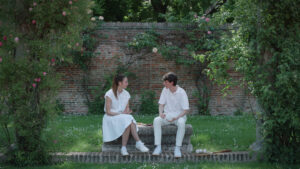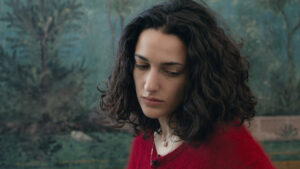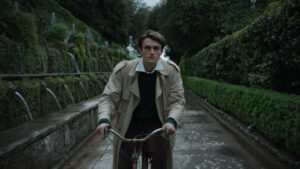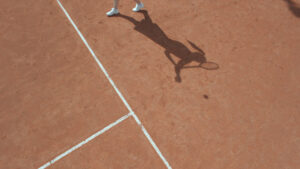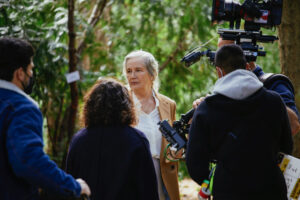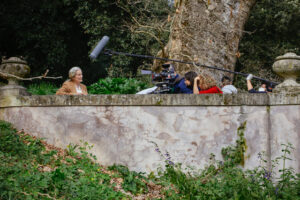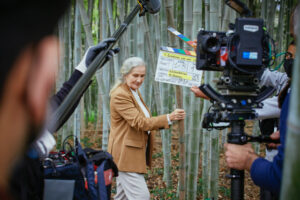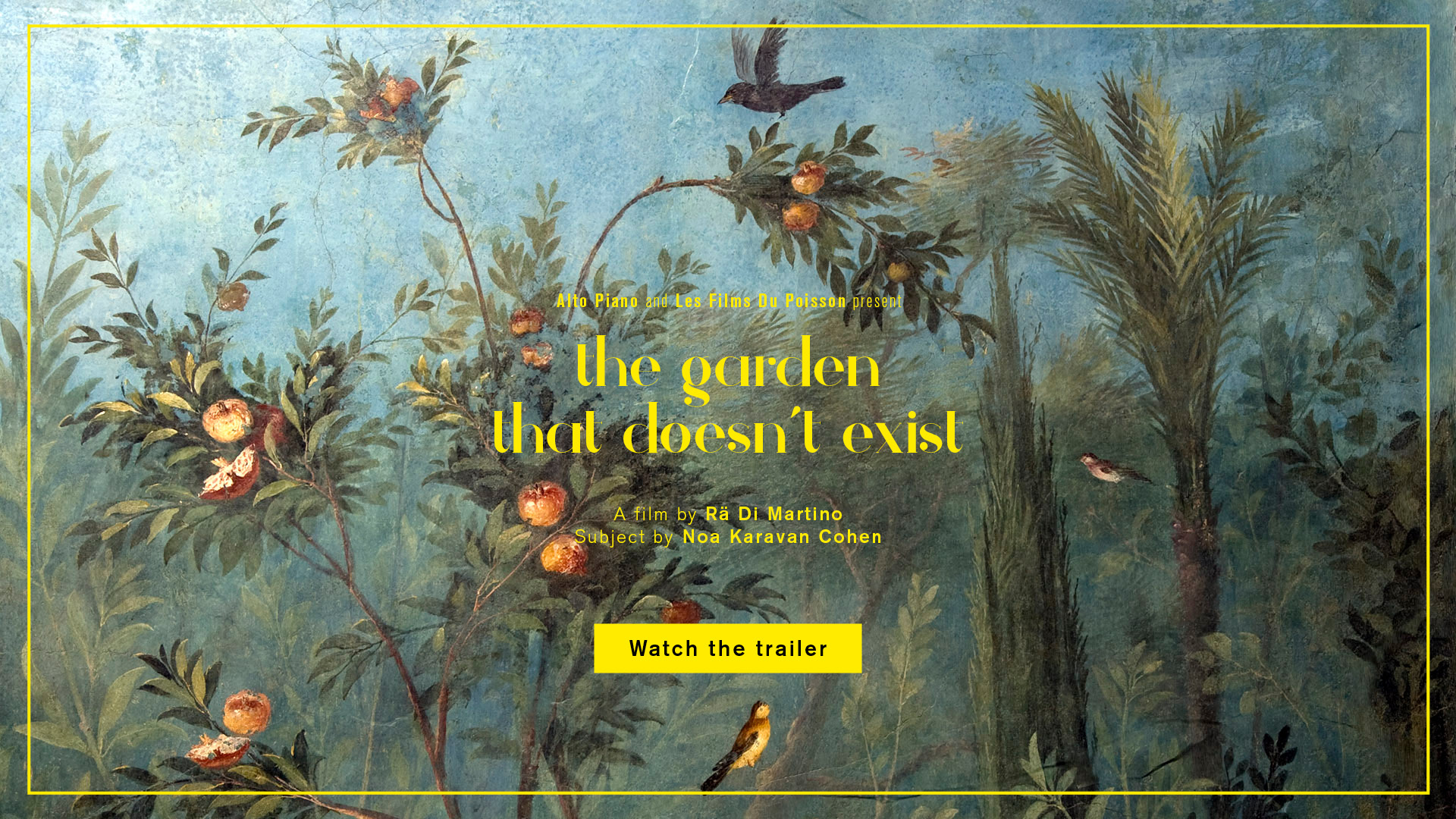

The garden of the Finzi-Continis never existed.
However, once upon a time there was a garden, which became a place of pilgrimage, a safe haven, thanks to the novel by Giorgio Bassani, a bestseller recounting the rise of fascism in Italy and the disappearance of the Finzi-Continis, a Jewish family from Ferrara. Reality, fiction, the documentary plays with History, the book and the characters from the novel…
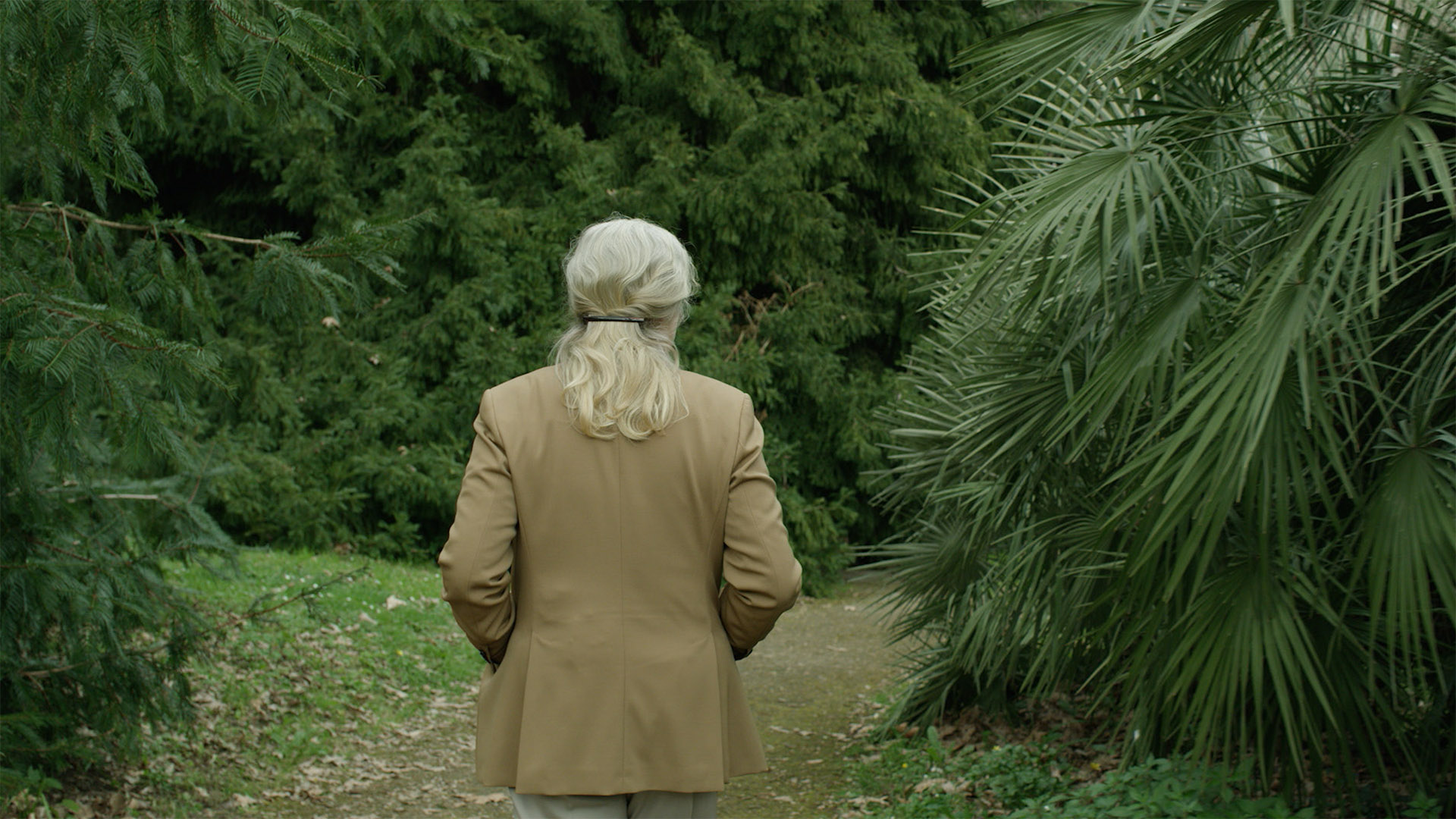
SYNOPSIS
The documentary film, Il Giardino che non c’è (The Garden That Doesn’t Exist) starts out from a question: how much does a work of art influence and condition our way of seeing the world? What are the consequences? How can something created by a writer, a director or an artist become real in the collective imagination?
Where is the limit between fiction and reality?
Our film seeks to explore these ideas, starting from Giorgio Bassani’s masterpiece, The Garden of the Finzi-Continis, to discover how this novel has influenced our way of imagining a city, Ferrara, a dramatic historical period, a Jewish family and a garden.
The documentary interweaves historical background, the powerful forces of cinema and literature, the compelling characters of the novel, De Sica’s film and the greatness of a work that has never been forgotten. A film within a film: actors, extras and interviews alternating with excerpts from historic films, in a succession of temporal references and walks along the paths of a Garden that does not exist…
The world of cinema unexpectedly honoured De Sica’s film with an Oscar.
His cinematic adaptation was clamorously disowned by Giorgio Bassani, thereby raising much hype around a story that was already highly regarded. Hundreds of Micòl stories were spawned, and students still find excerpts in anthologies that spark off debate even today.
Can art be the refuge we are looking for?
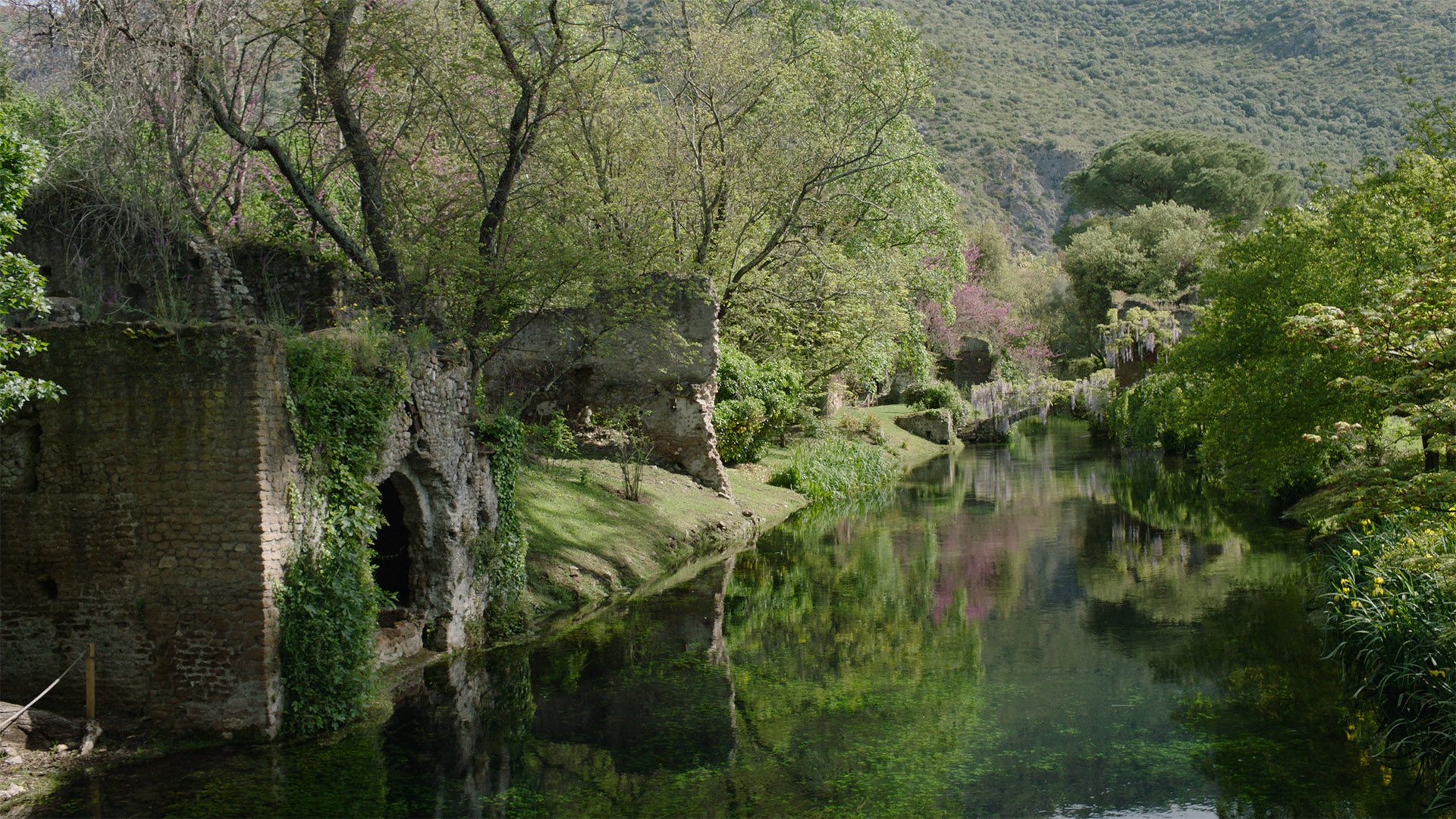
PRODUCTION
ALTO PIANO
Alto Piano is a production company based in Milan, funded by the film director Matteo Frittelli and the photographer Agostino Osio. We specialize in communication and production, harnessing a full range of media, with a particular focus on film and photography, creating contents for brands, businesses, cultural institutions and agencies.
Alto Piano has the fundamental tools to communicate a story, a vision and to empower ideas through our pragmatic, cohesive yet out-of-the-box approach.
We constantly produce and realize documentaries about artist and cultural events for the main public and private cultural institutions in Italy and abroad.
Filmography:
Current projects with Galleria Continua
La persona of Georges Adéagbo
Carlo Alfano: Between the self and the other – Screening at Artecinema 2019
The square of the black circle – Winner of “Now You See Me”, Louvre Museum, Paris 2018
Antony Gormley. Proiezione ad Artecinema 2017
LES FILMS DU POISSON
Founded in 1995, Les Films du Poisson has produced more than a hundred fictions and documentaries for cinema and TV. Funded both in France and internationally and distributed around the world, their productions have received great critical and public success (4 César, Camera d’Or and Best Director Award in Cannes, Jean Vigo Award, a nomination to the Academy Awards, plus a hundred selections at international cinema festivals around the world). The expertise of its producers has also been recognized on several occasions (IFCIC award, French Film personalities of the year, César for best producer…).
DIRECTOR’S NOTES
Formally the documentary will be built as a long uninterrupted walk through what appears to be a single garden, but that is in reality, composed of several ones. It will be made of carefully composed shots through an imaginary tour of garden paths, fountains, bushes, flower beds, trees. Almost as a long sequence shot that will take us through a journey that will narrate the story of the author, the novel and its many relations to history and to real people, to his memories as much as to the powerful literary inventions of the garden and the character of Micòl.
The concept of the garden is a metaphorical configuration of space that will allow us to take on this journey inside the novel. We will walk to meet all the characters – people that will share with us their stories and memories, whose life pathways were affected by the book and who carry the garden in their hearts.
We will meet the closest people to the author, his daughter Paola who directs the Bassani foundation, and his late wife Portia Prebys who also runs a centro studi bassaniani. They both have many memories and know a lot about his legacy.
We will talk with descendants of the families that were described in the book, Andrea Pesaro, descendant of the Finzi-Magrini family, apparently the family really described as Finzi Contini. Ferigo Foscali, the grandson of Teresa Foscari Foscolo, one of the woman that inspired Bassani for Micòl, Bassani gave her the manuscript with a hand-written dedication.
We will meet Daniele Ravenna – son of Paolo Ravenna, close friend of Bassani since they were young and with whom he shared a common destiny: they both had to leave public school after the racial laws and go to teach in a private one for Jewish students, they both survived. Daniele will tell that as a young man Bassani was in love with his mother and she might as well have inspired the character of Micòl.
In the garden we will also meet Dominique Sanda, who played Micòl almost 50 years ago, today, as she is in the book, she will be our entry door and guide in this visual walk.
The documentary will also reveal the complex and difficult relationship between Bassani and the De Sica’s Oscar winning film based on his book. Bassani wrote a first draft of the screenplay but De Sica, without notifying the author, chose to give the screenwriting role to Ugo Pirro, leaving Bassani’s name as co-writer. This move deeply offended Bassani, who decided to take De Sica to court. We will investigate further and the characters will develop on this battle, which in fact also made the book’s success even bigger…
All the people we meet and interview will add a piece to the story, moving from someone’s memory to an archival footage to an extract of the De Sica film, the puzzle will assemble, giving a portrait of an era, of the author, of the people that revolved around him and the impact of the book on its audience.
Formally the interviews will always be part of the walk in order to give a sense of movement and our garden will be composed of gardens that really inspired the book and that have been used as locations for the movies (the botanical garden and Villa Ada in Rome, Parco Reale in Monza, il giardino di Ninfa in Cisterna di Latina), but also others. There won’t be any visual cuts between one place and the other – they will always appear as a natural continuum so that we will invent our own garden of the Finzi-Continis that becomes a cinematic place composed of archival footage, photographs, paintings and contemporary shots, hosting many characters – characters living today with memories, stories and anecdotes.
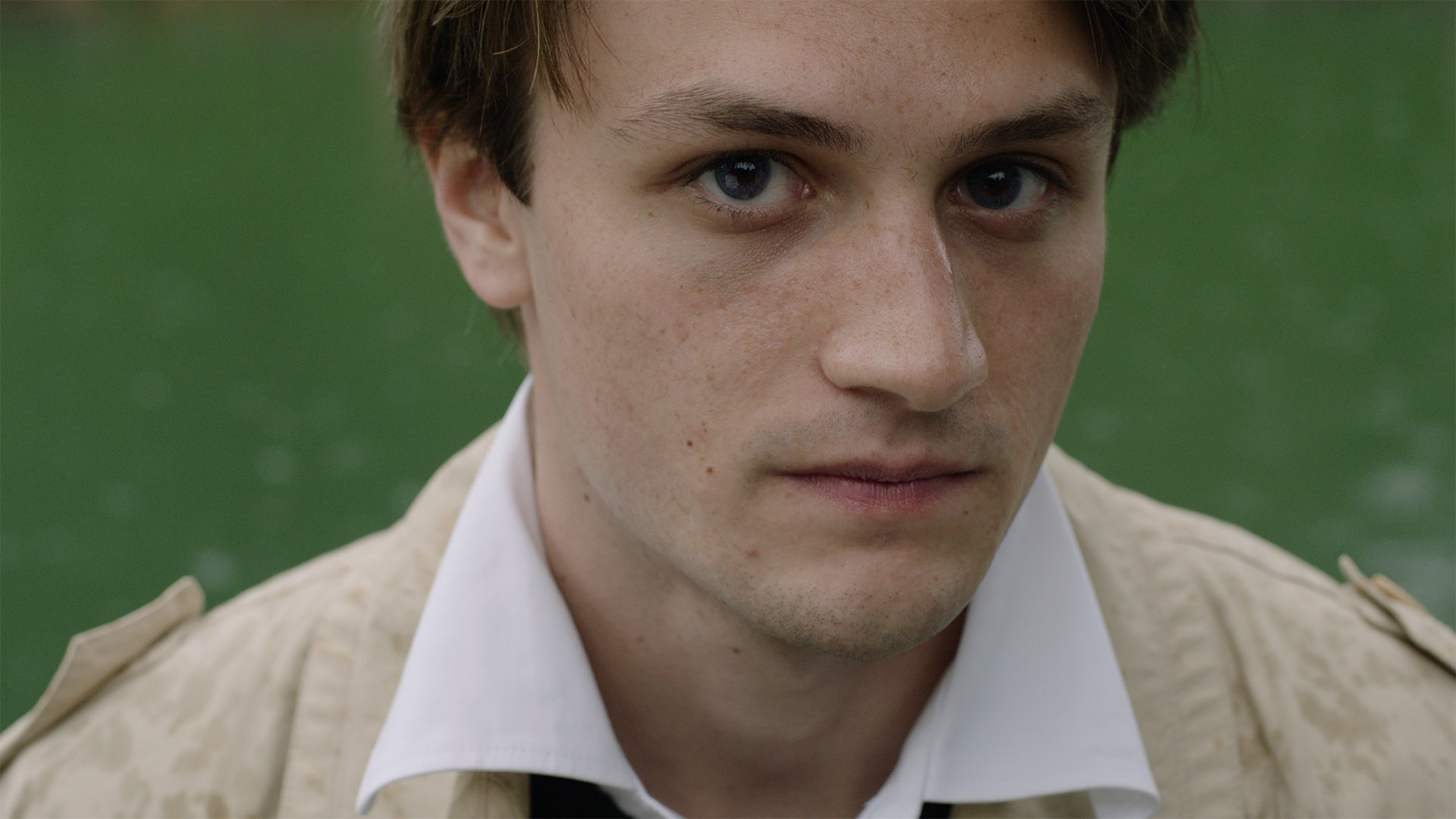
As we move more deeply inside the garden and into the work of Bassani, we will also introduce fictional characters, as if the book was coming to life and taking us to the metaphorical place we were describing earlier. For example we will film auditions where young women will read some lines and some excerpts of the book, a casting session made as if we were to find an interpreter for the role of Micòl today. As if this part of Bassani’s novel continues living and transforming in people’s memory and imagination and taking new forms..
These different elements will be scattered throughout the whole film and the movement from one aspect to another will always be fluid. At the same time, the story of the book will become clear as well as the historical context in Italy, in Ferrara and in the Jewish community before the war. Little by little, the history of the book will come to light, as well as the historical context in Italy, in Ferrara and the portrait of the Jewish community before the war. At the same time, the testimonies and the stories of the characters we will meet, who will evoke their intimate connection to Bassani and to his work, will take the film towards the imaginary and metaphorical part of the story.
In the final part, all these stories will converge, switching formally more and more to fiction, creating characters that embody the garden as an artifice of imagination.
NEWS

The film «The garden that doesn’t exist», directed by Rä Di Martino and starring Noa Karavan Cohen has been selected among the cinquines finalists,
in the docufilm section of Nastri D’argento.
The winners, as well as the prizes and special mentions, will be announced on April 26th
BIO AND FILMOGRAPHY
Rä di Martino (Rome, 1975) is a visual artist and film-maker. She studied in London where she graduated with an MFA at the Slade School of Art and after spending a few years in New York she moved back to Italy. Her practice explores the passage of time, as well as the discrepancies that differentiate epic narratives from lived experiences. Her film, video installations and photos have been shown in many institutions, museums and film festivals including: Moma-PS1, NY; Tate Modern, London; MCA, Chicago; Palazzo Grassi, Venice; Artists Space, New York; Museion, Bozen; Magasin, Grenoble; the Busan Biennial; Manifesta; Turin Triennale, Torino International Film Festival, Kino der Kunst – Munich, Viper Basel and Transmediale Berlin. In 2014 she presented her first documentary The Show MAS Go On at the Venice International Film festival winning the Gillo Pontecorvo Award and SIAE Award and winning a nastro d’argento for best docufilm. In 2018 her first feature film CONTROFIGURA, winner of the Eurimages Lab Award was presented at the Venice Film festival and was nominated for the Nastri d’argento best docufilm. Nel 2018/2019 she wins the Mibac – Italian Council and developed the video-installation and book AFTERALL, shown at Mattatoio/Palazzo delle esposizioni – Rome and at Kunstmuseum St. Gallen (2020).
Rä di Martino
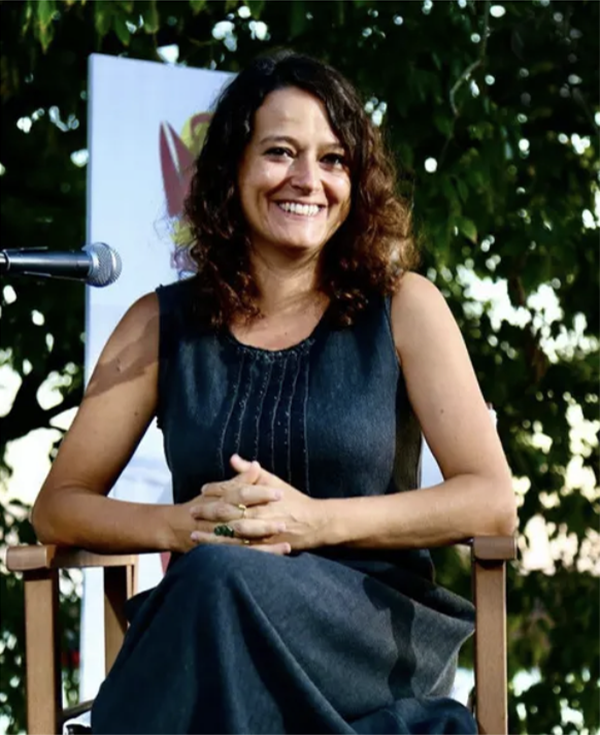
Noa Karavan Cohen
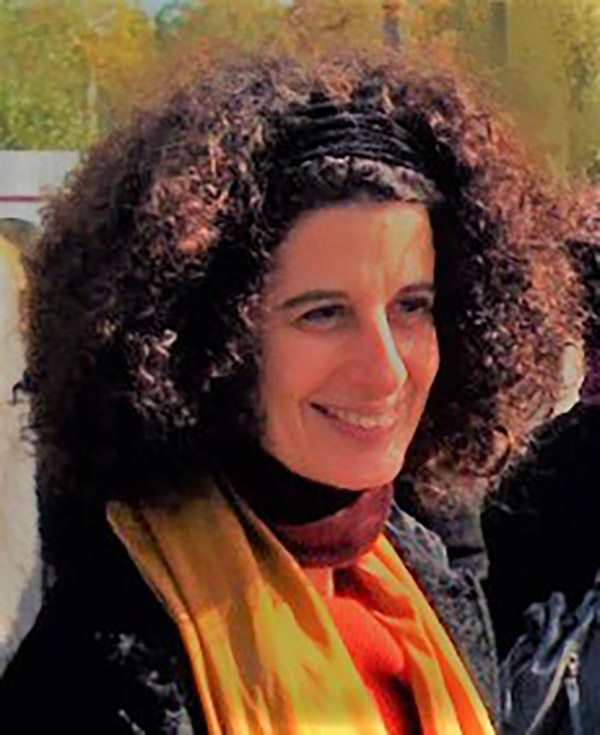
For more than 30 years, Noa Karavan-Cohen initiates, curates, produces and directs cultural projects, artistic events, exhibitions and documentary films, in Israel, Europe and Japan.
She has collaborated with institutions such as the European Commission, the Louvre Museum, UNESCO, DOCOMOMO, Beaux Arts, Forecast Public Art, and the Arts Arena, as well as numerous TV channels and museums around the world.
She has initiated and worked as content editor and consultant to numerous documentary films such as ‘Air, Light and Utopia’ (1994), ‘Grain of Sand ‘(1999), ‘The White City of Tel Aviv’ (2003) and ‘Unto Thy Land’ (2007).
She is the artistic director of the NowYouSeeMe! International Public Art Short Film Contest, which she founded in collaboration with the Journées Internationales du Film sur l’Art at the Louvre Museum in Paris.
She is co-director of the documentary project Archive of the Future, which aims to preserve the cultural legacy and heritage of the first generation of Israeli intellectuals.
CONTACTS
PRODUCTION

ALTO PIANO
Via Nerino, 8
20123 Milano
+39 02 82762918
altopiano@altopiano.studio
www.altopiano.studio

LES FILMS DU POISSON
54 rue René Boulanger
75010 Paris
+33 01 42 02 54 80
contact@filmsdupoisson.com
www.filmsdupoisson.com
